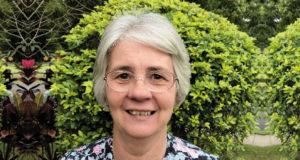Since the 15th assembly in July, many congregations have been holding meetings to discuss their response to the Assembly’s decision on same-gender marriage. South Moreton Presbytery Minister David Busch offers these suggestions on how to conduct effective and graceful conversations on the issue.
The Assembly resolved that the church could hold two definitions of marriage, one stating the gender of the couple to be a man and woman, and the other referring to the couple as “two people,” allowing for same-gender couples to marry.
Ministry agents, authorised Uniting Church celebrants, and church councils exercising their responsibility for oversight of use of church property, are free to choose which marriage statement they will adopt.
This has put the onus on church councils and congregations to consider the use of their property for same-gender weddings.
With congregations holding meetings across the Synod, here are some suggestions for good practice for such meetings:
- There is no rush for congregations to engage this issue, so don’t act hastily. Give your people time to be informed and prepared for any discussion. Identify some helpful resources and make them available for people to read and discuss prior to the meeting. These could include the Assembly decision itself and the history of the Uniting Church’s engagement and decisions on sexuality over the past 30 years (a helpful collection of these resources and a PowerPoint summary of the journey are available on the South Moreton Presbytery website—SouthMoreton.org.au and click on the marriage tab). Ask the congregation what they would like to know in preparation for such a meeting. Maybe have a feedback box in the church foyer for two or three weeks, and invite people to state their concerns and identify their questions.
- Have a clear purpose for the meeting and make this known beforehand. Is it a discussion to gauge the views of the congregation generally or will the congregation be asked to decide on a specific proposal or question (e.g., to advise church council on use of property. The congregation can advise the church council on property matters but decisions rest with church council per Regulations 3.1.1 and 4.4.1)?
- Anticipate that people will have different views on the question of same-gender marriage, and be aware that, in the spirit of the Assembly’s decision, both views have a place within the church. Therefore ensure that different views are able to be clearly and constructively presented in your meeting. You could line up a couple of speakers, one for each side, whom you could trust and help to prepare to explain their position with respect and thoughtfulness.
- It may be helpful for you to invite into the meeting someone who was present at the Assembly so they can provide some context to the Assembly decision. If they are not available in person, why not call them on speaker phone for a few minutes? You also might invite your presbytery minister, chairperson or Pastoral Relations Committee chairperson as a trusted navigator, advisor or facilitator for the meeting.
- Ensure the meeting is held in the context of worship—opening at least with a prayer but possibly also with a brief liturgy and a song, and closing in a similar manner. It is crucial that in all our meetings people are enjoined to be the church in how we speak with each other and in honouring the presence of Christ in our midst.
- Use the Uniting Church manual for meetings as your guide for helping people proceed through different stages of discussion—from information to questions to discussion and, if a decision is to be taken, to deliberation. It also indicates how to navigate such meetings through appropriate processes.
- This issue may generate strong reactions with considerable emotion, and many people may not feel confident or safe to speak to the whole meeting from their heart. Consider starting with people discussing the issue, or a particular aspect of it, in small groups. Someone from each group can then speak to the whole meeting about the kinds of questions or points that were raised. This enables a wide variety of voices to be heard and for points to be offered to the whole meeting without needing to be voiced by, or attributed to, any one individual. You may also nominate someone, perhaps the ministry agent or an elder—someone who is not participating in the discussion—to serve as a pastoral carer during and after the meeting for anyone feeling hurt or vulnerable.
- Begin by declaring that the meeting seeks to offer a safe space for all people, and then identify some particular values and behaviours that explain what is required for the space to be safe. We are not speaking about an abstract issue but about real people and, perhaps in many cases, people close to those in the meeting. Sensitivity and respect are our obligations to each other. Explain that this is a discernment space where we seek to hear God’s voice together. This requires careful speaking and listening. Manage the tone and pace of the meeting so that everybody is able to participate as safely as possible. For example, ensure that speakers make their points without denigrating or disparaging the Christian faith or integrity of those who hold a different view. It also can be helpful to have a brief pause (say, 10 seconds) after each speech so that people are able to collect their thoughts in the light of what has been shared before the next speaker begins. It can be helpful to capture the main points on a whiteboard as the meeting proceeds, as this helps keep the focus on significant points made during the discussion and away from emotion or personalities.
- If a decision is to be made or a vote taken, ask whether people would like it to be done by written ballot. Even only one or two people requesting this, is sufficient for a written ballot to be held to ensure that everybody feels they can express their view safely.
- Keep a sense of proportion about this question alongside the ever present mission and fellowship opportunities that engage the energies and hopes of the congregation. This matter and the different views that it might raise among your people need not define who you are, what you do or how you get along. The challenges and joys of your congregation’s life and witness will be the same tomorrow as they were before this issue arose. Perhaps before you end this congregation meeting, take the opportunity to remind the people of some of those exciting events and priorities that hopefully will continue to draw people’s holistic investment in this Christian community.
- Inform your presbytery how the meeting went and any decisions. At the next meeting of church council or elders, reflect on what you have learned from this meeting. Are there hurts or divisions that need pastoral attention? Is there more understanding or discussion that people need on this question? What might have helped make the meeting more effective, so we can learn for next time? What next steps or follow up might be prudent, either immediately or over the coming months?
- Throughout all of this, hold before you that scripture which is used in most wedding services and which Paul wrote to that most divided of New Testament churches, the one at Corinth—that all our efforts of faithfulness mean nothing without love (1 Corinthians 13). It is by our love alone that we fulfill all that God requires of us. God holds us all together in grace, and our identity and fellowship find their source only in Christ.
 JourneyOnline
JourneyOnline







